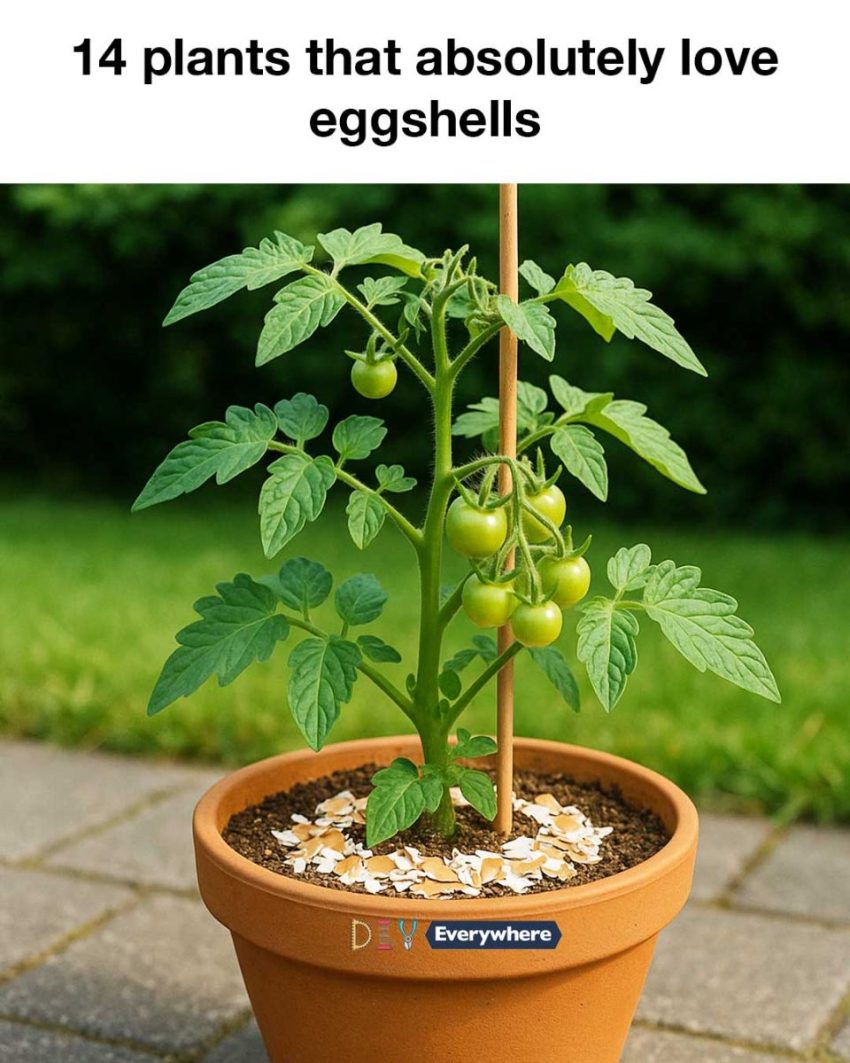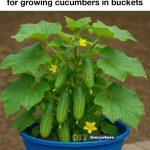ADVERTISEMENT
1. Why Eggshells Are Beneficial for Plants
Eggshells are primarily composed of calcium carbonate, which is essential for plant growth. Calcium helps build strong cell walls, which in turn supports the overall structure and health of the plant. A lack of calcium can lead to issues like blossom end rot in tomatoes and peppers.
In addition to calcium, eggshells contain small amounts of other minerals such as magnesium and phosphorus. These nutrients contribute to the overall fertility of the soil, promoting healthy root development and plant growth. By adding crushed eggshells to your garden, you can naturally supplement these essential nutrients.
2. How to Prepare Eggshells for Gardening
To prepare eggshells for gardening, start by rinsing them thoroughly to remove any egg residue. Once clean, allow them to dry completely. You can speed up the drying process by placing them in a low-temperature oven for about 10 minutes.
Once dried, crush the eggshells into small pieces or grind them into a fine powder using a mortar and pestle or a food processor. The smaller the pieces, the faster they will break down in the soil, making the nutrients more readily available to plants.
3. Tomatoes: Boosting Calcium Levels
Tomatoes are particularly susceptible to calcium deficiency, which can result in blossom end rot. By incorporating crushed eggshells into the soil around your tomato plants, you can provide a slow-release source of calcium.
For best results, mix about 1/4 cup of crushed eggshells into the soil at the base of each tomato plant. This will help prevent calcium deficiency and promote healthy, robust growth.
4. Peppers: Enhancing Growth with Eggshells
Like tomatoes, peppers also benefit from the calcium found in eggshells. Calcium is crucial for the development of strong cell walls, which supports the overall health and productivity of pepper plants.
To use eggshells with peppers, mix a handful of crushed eggshells into the soil before planting. This will provide a steady supply of calcium as the plants grow, helping to prevent common issues like blossom end rot.
5. Roses: Strengthening Blooms Naturally
Roses thrive in calcium-rich soil, making eggshells an excellent addition to their care routine. The calcium in eggshells helps strengthen the plant’s cell walls, leading to more vibrant and robust blooms.
To use eggshells with roses, sprinkle crushed eggshells around the base of the plant and gently work them into the soil. Doing this once a month during the growing season can enhance the health and beauty of your rose bushes.
6. Eggshells for Succulents: A Surprising Hack
Succulents, known for their low-maintenance nature, can also benefit from the addition of eggshells. The calcium in eggshells helps strengthen the cell walls of succulents, making them more resilient to environmental stressors.
To use eggshells with succulents, mix finely crushed eggshells into the potting soil before planting. This will provide a slow-release source of calcium, supporting healthy growth and development.
7. Eggshells and Their Impact on Hydrangeas
Hydrangeas are known for their stunning blooms, which can change color based on the soil’s pH level. While eggshells primarily add calcium, they can also slightly raise the soil’s pH, influencing the color of hydrangea blooms.
To use eggshells with hydrangeas, sprinkle crushed eggshells around the base of the plant and gently work them into the soil. This can help promote healthy growth and potentially alter the color of the blooms over time.
8. Eggshells as a Natural Pest Deterrent
In addition to their nutritional benefits, eggshells can also act as a natural pest deterrent. The sharp edges of crushed eggshells can deter soft-bodied pests like slugs and snails from damaging your plants.
To use eggshells as a pest deterrent, scatter crushed eggshells around the base of vulnerable plants. This creates a barrier that pests are less likely to cross, protecting your plants from damage.
9. Eggshells in Compost: Enhancing Soil Quality
Adding eggshells to your compost pile can enhance the overall quality of your compost. As the eggshells break down, they release calcium and other minerals into the compost, enriching it with essential nutrients.
To incorporate eggshells into your compost, simply crush them and add them to the pile. Over time, they will decompose along with other organic matter, creating nutrient-rich compost that can be used to improve soil quality in your garden.
10. Herbs That Thrive with Eggshells
Many herbs, such as basil, parsley, and thyme, can benefit from the addition of eggshells. The calcium in eggshells supports healthy growth and development, ensuring that your herbs remain vibrant and productive.
To use eggshells with herbs, mix crushed eggshells into the soil before planting or sprinkle them around the base of established plants. This will provide a slow-release source of calcium, promoting strong, healthy growth.
11. Eggshells for Indoor Plants: A Practical Guide
Indoor plants can also benefit from the addition of eggshells. The calcium in eggshells helps support healthy growth and development, ensuring that your indoor plants remain vibrant and healthy.
To use eggshells with indoor plants, crush them into a fine powder and mix them into the potting soil. Alternatively, you can create a liquid fertilizer by soaking crushed eggshells in water for several days and using the water to water your plants.
12. Using Eggshells to Improve Soil Drainage
Eggshells can also help improve soil drainage, particularly in heavy or clay soils. The addition of crushed eggshells can create air pockets in the soil, allowing for better water movement and root growth.
To use eggshells to improve soil drainage, mix crushed eggshells into the soil before planting. This can help prevent waterlogged conditions and promote healthy root development.
13. Eggshells as a Sustainable Gardening Practice
Using eggshells in the garden is a sustainable practice that reduces waste and promotes environmental health. By repurposing eggshells, you can reduce the amount of waste that ends up in landfills and provide valuable nutrients to your plants.
Incorporating eggshells into your gardening routine is an easy and effective way to practice sustainability. By using this simple kitchen scrap, you can enhance your garden’s productivity while reducing your environmental footprint.
14. Common Mistakes When Using Eggshells in Gardening
While eggshells can be beneficial, there are some common mistakes to avoid. One mistake is not crushing the eggshells finely enough, which can slow down the decomposition process and delay nutrient release.
Another mistake is overusing eggshells, which can lead to an imbalance of nutrients in the soil. It’s important to use eggshells in moderation and as part of a balanced fertilization plan. By avoiding these common mistakes, you can maximize the benefits of eggshells in your garden.


